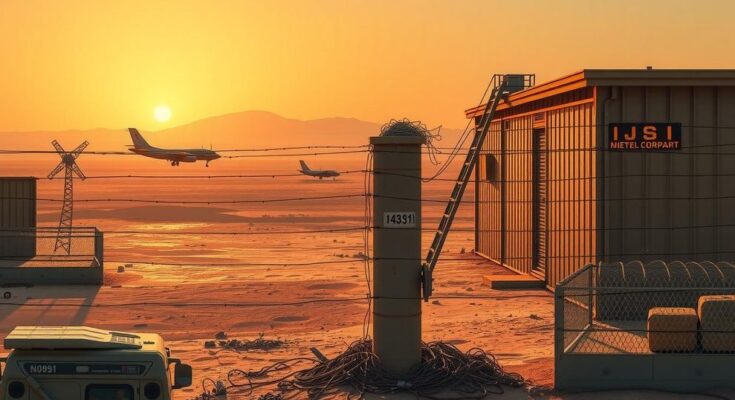A group of eight migrants deported from the U.S. was detained in Djibouti post-court ruling against their expulsion to South Sudan. U.S. District Judge Brian Murphy ruled that the migrants were not given sufficient time to appeal their deportation, citing a violation of their rights under the UN Convention Against Torture. The Trump administration expressed frustration over the delay.
In a surprising turn of events, a group of eight migrants who had been deported from the United States are currently being held in Djibouti due to a court ruling. This situation arose after the Trump administration announced they were being sent to South Sudan, a country struggling with ongoing conflict since its independence. The U.S. government stated these individuals were removed for prior violent convictions, which has sparked considerable controversy.
The deported migrants were supposed to arrive in South Sudan, but due to a lack of approval from their home countries, they were redirected to Djibouti. Here, at a significant U.S. military facility, they are under the supervision of the Department of Homeland Security (DHS). The recent court decision has complicated their situation further.
U.S. District Judge Brian Murphy issued a ruling that the administration had breached a previous order regarding the notification process for the migrants. The judge emphasized that they deserved more time to appeal their expulsion, arguing that the ten-day notice given was grossly inadequate. In his ruling, Murphy pointed to the guidelines established by the United Nations Convention Against Torture, insisting that the migrants receive greater notice for any legal appeals.
Additionally, the ruling allows six migrants to consult with an attorney regarding their fears of torture or mistreatment if returned to their designated country, South Sudan. The DHS must now comply with the ruling, which includes permitting a minimum of 15 days for appeals should the department dismiss their fears.
The Trump administration responded critically, with the former president expressing his discontent via his Truth Social account. He pointedly criticized Judge Murphy’s decision, describing the migrants as “eight of the most violent criminals” and lamented their delayed journey to South Sudan. Trump remarked that the court system is “absolutely out of control” for halting their deportation.
The White House has identified the deportees as two citizens from Myanmar, two Cubans, one Vietnamese national, one Laotian, a Mexican, and a South Sudanese individual. However, scrutiny has emerged regarding the adequacy of prior notice given to these individuals regarding their expulsion, particularly from the Vietnamese and one Myanmar deportee who claimed they were informed only hours before boarding the flight.
A DHS spokesperson further added that South Sudan should not be seen as the final destination for these migrants who have been forced into this unique, and certainly challenging, situation.
This complex and evolving situation highlights ongoing legal and humanitarian discussions surrounding the deportation policies currently enforced by the United States, particularly regarding individuals seeking refuge from conflict-ridden regions.
In conclusion, the ongoing detainment of the deported migrants in Djibouti represents a troubling intersection of legal, humanitarian, and policy challenges. The court ruling highlights significant concerns about the deportation process and the obligations to allow adequate legal recourse. As the situation develops, it draws attention to broader issues regarding the treatment of individuals facing potential violence in their countries of origin. Key figures from the Trump administration have expressed strong discontent, indicating these tensions are far from resolved.
Original Source: www.thehindu.com




